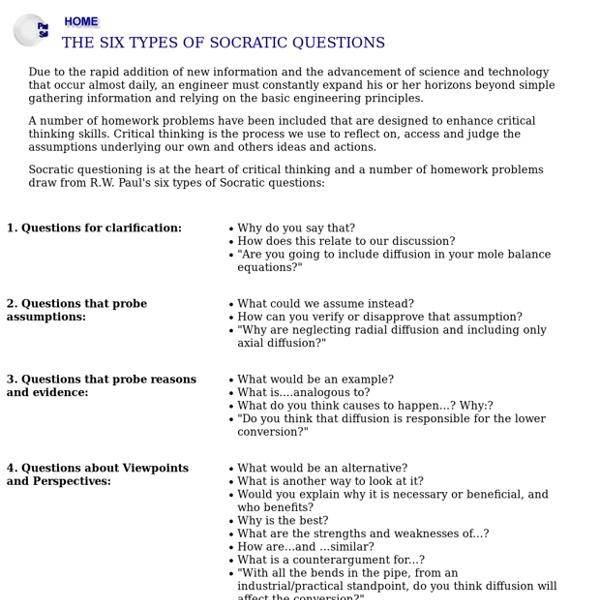



http://www.umich.edu/~elements/probsolv/strategy/cthinking.htm
Related: mrseva249 Bloom's Taxonomy Verbs For Critical Thinking Bloom’s Taxonomy’s verbs–also know as power verbs or thinking verbs–are extraordinarily powerful instructional planning tools. In fact, next to the concept of backwards-design and power standards, they are likely the most useful tool a teacher-as-learning-designer has access to. Why? They can be used for curriculum mapping, assessment design, lesson planning, personalizing and differentiating learning, and almost any other “thing” a teacher–or student–has to do.
Common Core: 5 Technology Tools To Measure Text Complexity by Kellie Ady, District Instructional Technology Coordinator, Cherry Creek Schools I posted some time ago about finding accessible online text, but a recent blog post from Eye on Education (“How to Select Complex Text to Increase Rigor”) made me think about revisiting the topic. My original post was more about finding reading passages for differentiation purposes, but the Common Core’s approach to measuring text complexity has now elevated that need to a whole new level. Developing 21st Century Critical Thinkers As we venture into the 21st century, we as a society, are faced with more innovation and challenge than ever before. We now live in an interconnected world, where the Internet and global communications are simultaneously uniting and isolating us as a society. How do we raise critical thinkers to best face the challenges that face our modern society?
This sentence has five words. This sentence has five words. Here are five more words. Five-word sentences are fine. 5 Powerful Questions Teachers Can Ask Students My first year teaching a literacy coach came to observe my classroom. After the students left, she commented on how I asked the whole class a question, would wait just a few seconds, and then answer it myself. "It's cute," she added.
Critical Thinking - Making the most of your coursebook - ELT Connect I joined in yesterday in the Macmillan Education online conference and Ed Newbon’s webinar in particular on Critical Thinking Skills really got me, well…thinking. He argued that our role as teachers is changing, that nowadays it is not enough for students to only speak English, they need to have transferable skills for work, studies etc. Critical thinking is one of the skills that we can incorporate into the ELT classroom which can help students perform in the outside world. So what is critical thinking? Newbon gave several examples but in a nutshell, it is seen as higher level thinking: problem solving, making judgements, evaluation and reflection.
21st Century Icebreakers: 11 Ways To Get To Know Your Students with Technology In honor of the start of a new school year, I am sharing one of my popular posts again with you with a couple of new additions! On Monday I will begin my new job. As I’ve mentioned before, I will be working as a Technology Resource Specialist as well as teaching a couple of classes. As always, I am nervous and excited for the first day of school, and eager to meet a new group of students. As an educator, I often find myself repeating the same icebreakers each year, trying to quickly get to know my students through “Two Truths and a Lie” or a “Getting To Know You” fact sheet. 10 Team-Building Games That Promote Collaborative Critical Thinking One of education’s primary goals is to groom the next generation of little humans to succeed in the “real world.” Yes, there are mounds of curricula they must master in a wide breadth of subjects, but education does not begin and end with a textbook or test. Other skills must be honed, too, not the least of which is how to get along with their peers and work well with others.
Google Classroom Training Skip to content Skip to navigation Skip to login Beginning of dialog content User Settings End of dialog content